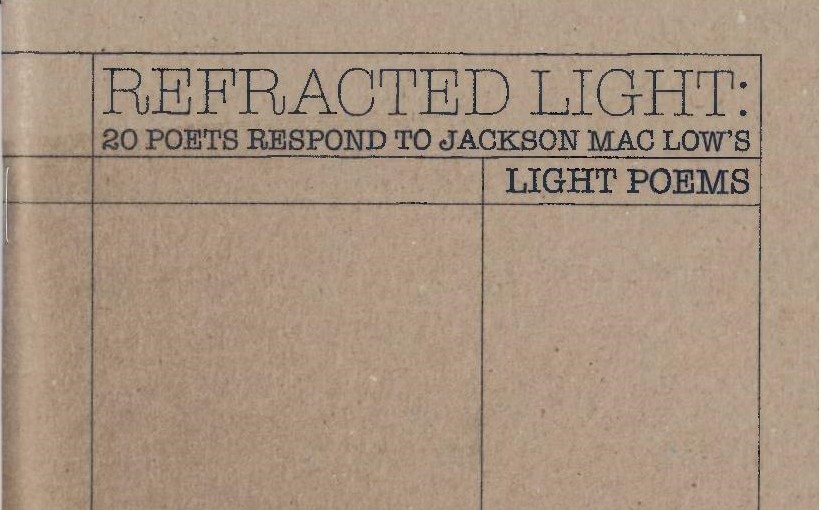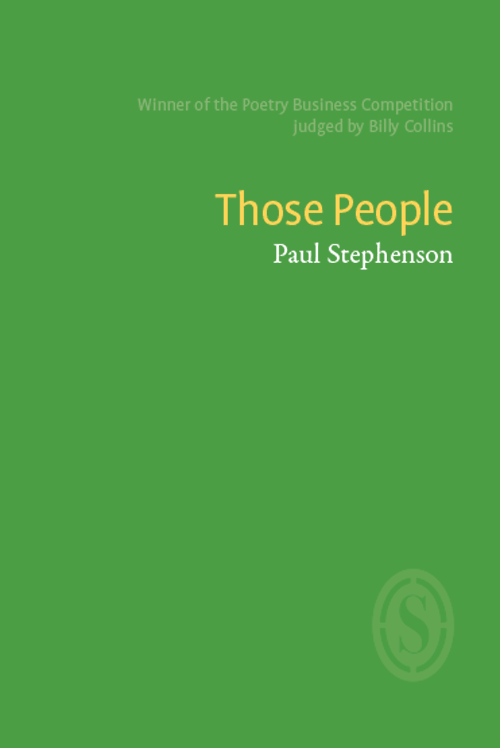george clooney will always be handsome: towards a phenomenology of george clooney by Mike Saunders
– Reviewed by Colin Herd –
In which way, and by which light, does he glow
george clooney will always be handsome, Mike Saunders’ ultra-limited-edition pamphlet from Sam Riviere’s If A Leaf Falls Press, is a 9-page poem on the handsomeness of George Clooney. Saunders pirouettes from Walter Benjamin and Judith Butler to speculation on the extent of the actor / director / producer’s cosmetic surgery, and dissolves in a “godless mantra”. The first sentence of the poem is 21 lines long; it begins:
To the extent that any single person can act
as a membrane between different modes of life, I wonder
if it can be said that george clooney illuminates a further understanding of life
greater than the life that he himself lives
or in the multiple lives suggested by the projected experience of george clooney
that we are permitted to see
As even this short excerpt suggests, the poem oscillates and teeters precariously. It diverts, conditions, folds in on itself. Its way of moving feels uncertain. It feels as though it doesn’t feel the desire or the capacity to convince us of anything. It acknowledges the shakiness of the premise that George Clooney’s handsomeness offers a way of thinking about biopolitics more widely, about exertions of power and control on the body, desire and other biological life processes. The poem takes the “towards” of its title seriously and inhabits a process of becoming.
Its vacillations offer up a series of bifurcations, moments where we choose to take the poem at the level of its subject or to ripple our considerations outwards into other spheres of thought. It’s easy at times to come close to losing George Clooney in the poem, to forget that his handsomeness roots it in desire. Even if there are moments of studious dispassion “as we spiral / in this entropy of similar but less handsome industrialised objects”, their corresponding fishtails bring us back to subjective desire: “george clooney, I am thinking of you and about you, / and along with other witnesses I think of how handsome you are.”
In moments like this, George Clooney as “industrialised object” seems to strain and flicker; the social, emotional, linguistic and sexual investment in George Clooney’s handsomeness is articulated and erased almost instantly: “how this revelation stands for nothing.” It’s almost as though the poem has an in-built ‘Clear Search History’ function, and no sooner does it snag or get tangled up in George Clooney than the function springs in to restore him as an ideal of handsomeness: “your presence will be largely symbolic and completely transitory.”
If Saunders evokes slippages in the signification of George Clooney, he does so equally in the word “handsome”. We might remind ourselves of its etymological roots as an adjective meaning easy to handle or use, especially in regards to activities such as hunting, seizing and chasing. Saunders’ approach to the poem might be verbed as handsoming, a now obsolete term for refining and polishing a surface. Saunders invites such readings by situating us always first and foremost in a linguistic as well as social relation to George Clooney: “it is worth noting that an anagram of George Clooney is encore geology.”
Who or what is easy to handle or use in this text? And who or what is being used? If at times I felt, reading this, like I was being toyed with, I sure as hell am not complaining about it. There’s also a more significant level at which the text draws attention to exploitation and control. Returning to those first few lines, it’s the “projected experience of george clooney that we are permitted to see”. Permission is a recurring motif which reads as a kind of plea for autonomy, articulating a desire to de-inhibit ourselves from precarious dependence on George Clooney’s handsomeness: “we are all held, no matter what, / in a banal and unhealthy awe”. Veined through the text is a deadpan seriousness – “an increased level of endorphins / supplied in part by a constant and externally managed philanthropic portfolio” – and committed wit – “we’re talking coconut oil in massive quantities”.
It’s a very fresh, smart, healthy and certainly not banal kind of awe that Mike Saunders accomplishes in George Clooney will always be handsome: towards a phenomenology of George Clooney. With a debut collection from Gatehouse Press also on the way, he’s proving a distinctive technician of the essay-poem, not a word out of place, somewhere between David Antin’s legendary talk poems and Anne Boyer’s recent lyric prose.





